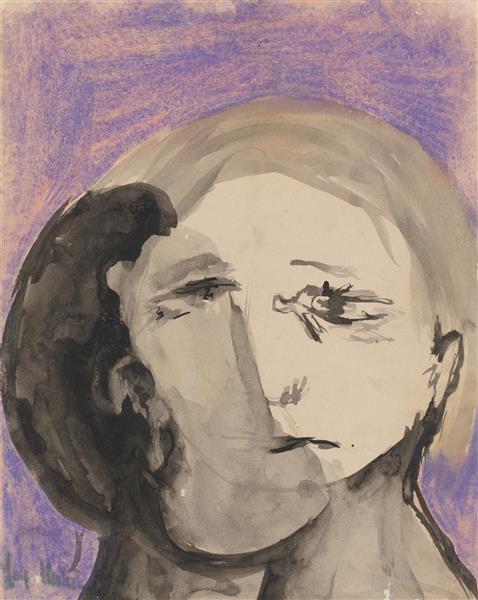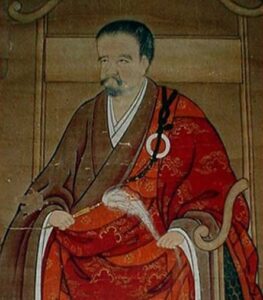Shingon priest Kōgen, head abbot of the Ninna-ji visited Bankei at Jizō-ji. … Kōgen said to Bankei: “So far, all my efforts to discover the source of my own mind have been unsuccessful. Reading through the records of the Zen school. I have been deeply impressed by the severe, uncompromising methods that zen teachers use in leading students to the truth. I want you to use your skilfull means on me.”
“There is only a very thin fabric seperating you from your mind-source,” said Bankei. “But ‘if there is even a hairbreadth of difference, you are as far from it as heaven is from earth.'”
A moment passed.
“What is obstructing you right now!” said Bankei. Kōgen nodded in affirmation – than bowed in obeisance. After that he was a frequent visitor at Jizō-ji.
(meer…)

A monk said to Bankei: I was born with a short temper. … i’m unable to rid myself from it no matter how hard I try … Please tell me what to do.
Bankei: All that your parents gave you when you were born was a Buddha-mind. Nothing else. What have you done with it!? From the time you were a tiny baby, you’ve watched and listened to people losing their tempers around you. You’ve been schooled in this, until you too have become habituated to irascibility. So now you indulge in frequent fits of anger. But it’s foolish to think that’s inherent. Right now, if you realize you’ve been mistaken, and you don’t allow your temper to arise anymore, you’ll have no temper to worry about. Instead of trying to correct it in the first place. That’s the quickest way, don’t you agree? Trying to do something about it after it occurs is very troublesome and futile besides. Don’t get angry to begin with, then there is no need for anything.
Once you’ve realized this and you stop creating that temper of yours, you’ll find that you won’t have any other illusions either, not even if you want to, you’ll be living constantly in the unborn Buddha-mind. There is nothing else.
Bankei Yotaku
(meer…)
In 1633, at age eleven, Bankei Yotaku (1622 – 1693) was banished from his family’s home because of his consuming engagement with the Confucian texts that all schoolboys were required to copy and recite. Using a hut in the nearby hills, he wrote the word Shugyo-an, or “practice hermitage,” on a plank of wood, propped it up beside the entrance, and settled down to devote himself to his own clarification of “bright virtue.”
He finally turned to Zen and, after fourteen years of incredible hardship, achieved a decisive enlightenment, whereupon the Rinzai priest traveled unceasingly to the temples and monasteries of Japan, sharing what he’d learned.
“What I teach in these talks of mine is the Unborn Buddha-mind of illuminative wisdom, nothing else. Everyone is endowed with this Buddha-mind, only they don’t know it.” Casting aside the traditional aristocratic style of his contemporaries, he offered his teachings in the common language of the people. His style recalls the genius and simplicity of the great Chinese Zen masters of the T’ang dynasty.
D.T. Suzuki on Bankei’s teaching: ‘[The Unborn] is truly one of the most original developments in the entire history of Zen thought.’

Uit: The Unborn – The Life and Teachings of Zen Master Bankei. Translated by N. Waddell – revised edition. North Point Press, 2000, New York. Texts from front & back cover
Afbeelding: Bankei Yotaku, wikipedia.

